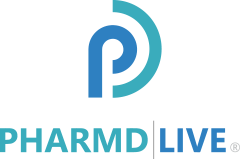Aging is not a disease, doctors teach patients
Satchel Paige, pitcher and authority on aging, pondered, “How old would you be if you didn’t know how old you was?” A healthy attitude is ageless. Marshall Eidenberg, DO, regional medical director at PharmD Live, says, “Aging is going to happen if we are lucky enough to live so long. The trick is to become the people we want to be.”
Sound mind and body
About 20 years ago, Healthy Aging® magazine introduced “September is Healthy Aging® Month.” September is an excellent time for doctors to review with patients what they are doing to maximize the quality of their lives through mind, body, and spirit. Eidenberg says, “A shoe company, ASICS, stands for Anima Sana In Corpore Sano. That means, ‘sound mind in a sound body.’ It is this connection between the body and mind that is key. Here’s an inspiring video of Marcia Walker, a cross-fit exerciser. Her message is, “Get off of the fence and just do it,” she says. “Everybody comes into it with different weaknesses and strengths, and if you can’t do a pull-up, then you come in and do what you can do and grow into it.”
It is our minds that tell us what we can and can’t do. We may have to modify and adapt as we get older, and muscles and joints don’t respond as well. In 2013 a Harvard study showed exercise is as effective as prescription medicines for preventing common conditions like heart disease, strokes, and diabetes. Even better, there are no medication side effects or interactions. But if this isn’t an option, we are here to mitigate problems.”
Strength and balance in attainable doses
Dr. Eidenberg advises, “Have patients adopt a simple program and focus on strength and balance. Make sure it is something they enjoy because the best exercise is of no benefit if it doesn’t happen; it is like medicine kept in the bottle.” For patients on Medicare, it’s well worth educating your patients about how they can avoid some conditions or manage those they have that are chronic.
Since the top two issues in senior care are falls and adverse drugs events, a Chronic Care Management (CCM) plan can help your patient sort the advantages and disadvantages of certain behaviors and the medications prescribed to manage them. Pharmacists know more about how medications act or cause problems when used with other drugs.
New topics in the field
The National Institute of Aging (NIA) is a subordinate agency of The National Institute of Health. For more than a decade, the NIA has been testing a variety of compounds on mouse models to see which ones extend life. They have found that some simple interventions like aspirin and glycine increase lifespan in these mice by at least 10%. The full list is available here. Since these are pharmaceutical interventions, our clinical pharmacists can incorporate the latest science and minimize interactions between therapeutic compounds.
PharmD Live engages patients in extending healthy years
The government doesn’t acknowledge aging as a disease. Ultimately all of this is about the patient’s health. With the increasing burden of more complex patients as society becomes older, we as clinicians may not have the time we want to spend with each patient.
Several conditions are due to aging, so how do patients and doctors decide whether and how to combat inevitable aging and put more life in a person’s senior years? Especially when the average physician visit is 15 minutes, and less is spent with the patient due to the “meaningful use” government rules. For a more ironic insight, see this article in Forbes.
Any Medicare patient with two or more chronic diseases is a candidate for the Medicare CCM program. Physicians have an opportunity to take advantage of the revenue stream provided by enrolling eligible patients and help patients improve how well they age. Eidenberg says, “It’s not just about the lifespan; it’s about health span and extending the healthy years.”
This is where we can help. By providing more touchpoints with your higher complexity patients, we can keep them engaged in their own health, prevent and mitigate drug interactions, and decrease polypharmacy complications. We can all do well by doing good.
Patients engaged in their healthcare can live well with chronic conditions, and medical practices that engage appropriate care coordinators to intervene before issues arise can benefit their practice. Combined with coding and reporting that eases the staff burden of the medical practice, PharmD Live also contributes to the health of the business of medicine.
About Marshall Eidenberg, DO, MBA
Regional Medical Director Marshall Eidenberg, DO, MBA, PharmD Live, also works as a chief medical officer in an austere environment. He established medical public health protocols in underserved communities. He previously ran a Direct Primary Care Practice focusing on health and wellness interventions within the community. In his free time, he competes in triathlons and is fumbling his way through learning the guitar.
About PharmD Live
PharmD Live is a network of clinical pharmacists working as care coordinators in partnership with medical practices. The care delivery model improves patient outcomes, drives clinical efficiency, and increases value-based profitability. For more information, call +1 (202) 765-1429 or visit pharmdlive.com.








